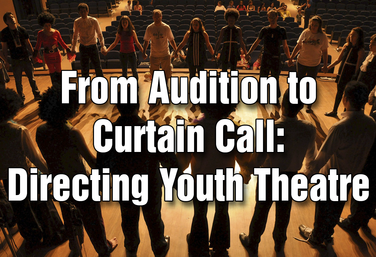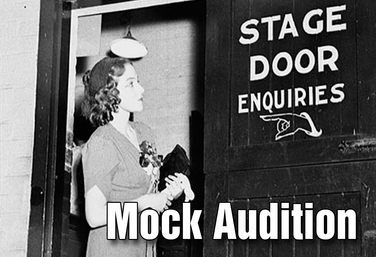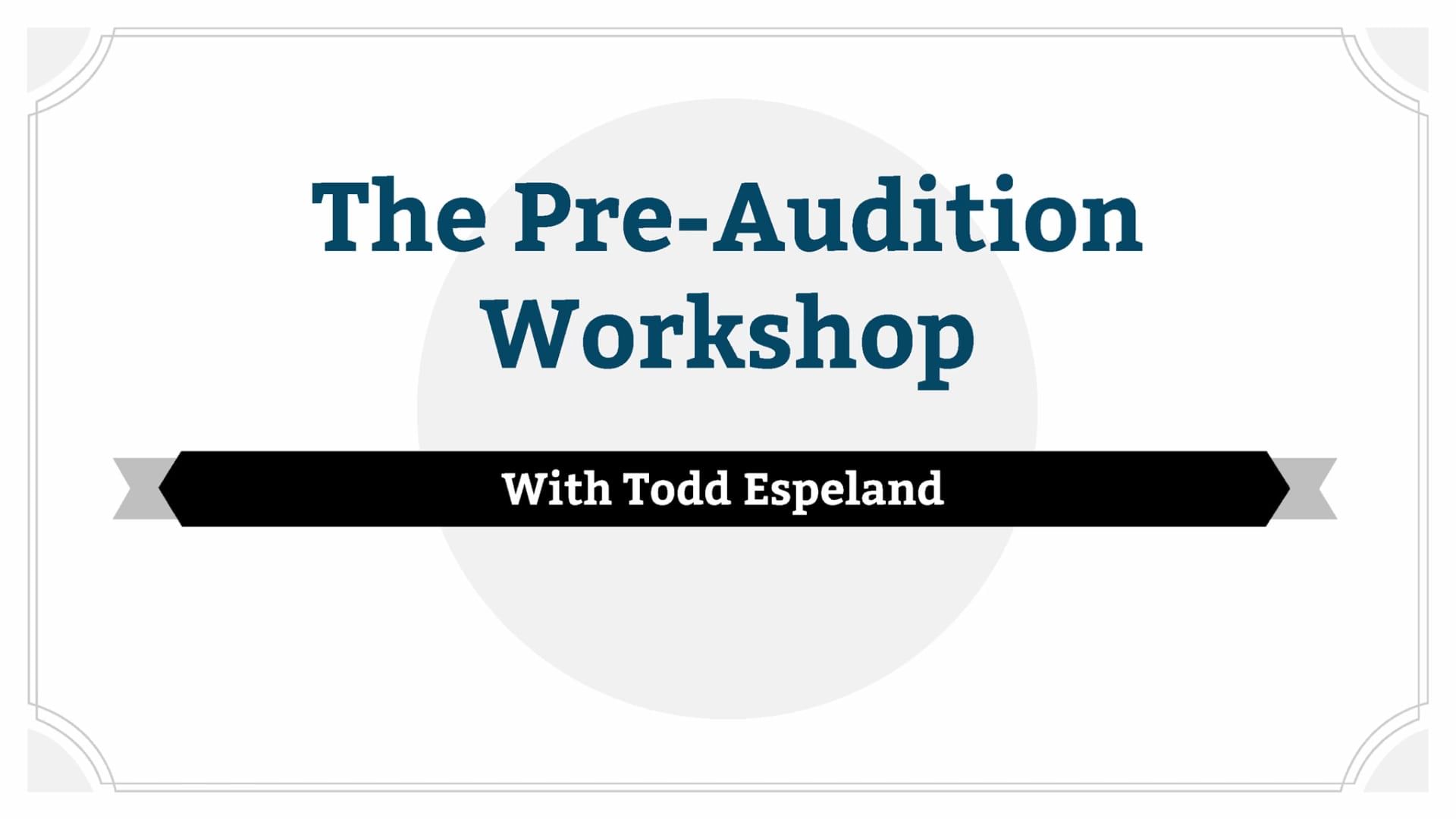Courses

PD COURSE
From Audition to Curtain Call: Directing Youth Theatre
by Steven Stack
Directing youth theatre can be one of the most thrilling, rewarding, and exhausting jobs there is – because it’s not just about staging a play. It’s about creating an environment that fosters hard work, dedication, trust, and the willingness to take chances, to “play without fear.”
As a writer/teacher/director of youth theatre for over 15 years, I have developed tools and strategies that enable my students and me to focus on the process of creating theatre while fostering an environment that leads to creative freedom and a cohesive groups that doesn't act as individual “stars,” but as a community of one.
In this course, I will share with you these tips and strategies, along with the ways to implement them in your theatre environment.
Read More
about From Audition to Curtain Call: Directing Youth Theatre
Read Less
about From Audition to Curtain Call: Directing Youth Theatre
Units

UNIT
Mock Audition
by Lindsay Price
In this Mock Audition Unit, students will start by discussing the audition process. They will make connections between their personal views and the process. Students will then apply the steps of auditioning from putting together a resume, to choosing a piece based on provided information, to audition etiquette, to the actual audition itself. A final reflection and rubric are provided for use at the end of this unit.
A short play is included that can be used as the source material. You can also choose your own play for this process.
Read More
about Mock Audition
Read Less
about Mock Audition
Lesson Plans
LESSON PLAN
The Audition Slate
by Annie Dragoo
Making a first impression is the most important part of an audition. By learning to slate with confidence, students will learn how to introduce themselves in an musical theatre audition.
Read More
about The Audition Slate
Read Less
about The Audition Slate
LESSON PLAN
The Musical Theatre Audition Portfolio Project
by Annie Dragoo
Part of the audition process is preparation. And that is not just memorizing a single monologue or one song. It’s preparing a wide variety of material for a variety of situations. By preparing an audition portfolio, students will be ready for any type of audition that may arise. The portfolio will also help students explore different genres of musical theatre.
Read More
about The Musical Theatre Audition Portfolio Project
Read Less
about The Musical Theatre Audition Portfolio Project
Resources
RESOURCE
Be Amazing In Two Minutes Or Less
An audition guide for student actors. Covers choosing, preparing, and performing monologues. Plus - how to process feedback.
Read More
about Be Amazing In Two Minutes Or Less
Read Less
about Be Amazing In Two Minutes Or Less
RESOURCE
Audition Advice
Four key steps to preparing for an audition are outlined in this guide that will help students prepare for auditions.
Read More
about Audition Advice
Read Less
about Audition Advice
RESOURCE
A Midsummer Night's Dream Character Warm-up
Use this exercise in the early days of rehearsal or even as part of your audition process. It allows students to get into the physical side of a character without having to worry about hitting the “thees” and “thous.” This works well with any Shakespeare play.
Read More
about A Midsummer Night's Dream Character Warm-up
Read Less
about A Midsummer Night's Dream Character Warm-up

RESOURCE
Auditioning: The Pre-Audition Workshop
Todd Espeland shares his experience running pre-audition workshops, and demonstrates how they can help get your actors ready for the 'real thing'.
Read More
about Auditioning: The Pre-Audition Workshop
Read Less
about Auditioning: The Pre-Audition Workshop
Attachments

RESOURCE
Auditioning: In Front of the Table
Todd Espeland shares his tips for setting yourself up for success in the audition process.
Read More
about Auditioning: In Front of the Table
Read Less
about Auditioning: In Front of the Table

RESOURCE
Auditioning: Behind the Table
Todd Espeland shares tips from behind the audition table, to help increase the quality of actors and the quality of the work that actors bring.
Read More
about Auditioning: Behind the Table
Read Less
about Auditioning: Behind the Table
PLCs

PLC
Awesome Auditions
Hosted by Matt Webster, Lindsay Price, Claire Broome, Karen Loftus
How did your latest round of auditions go? Smooth sailing or full of choppy seas? This PLC will dive into best practices with the audition process whether it be for your spring musical or your next classroom production. Bring your best tips to share in the chat room.
Read More
about Awesome Auditions
Read Less
about Awesome Auditions
Attachments